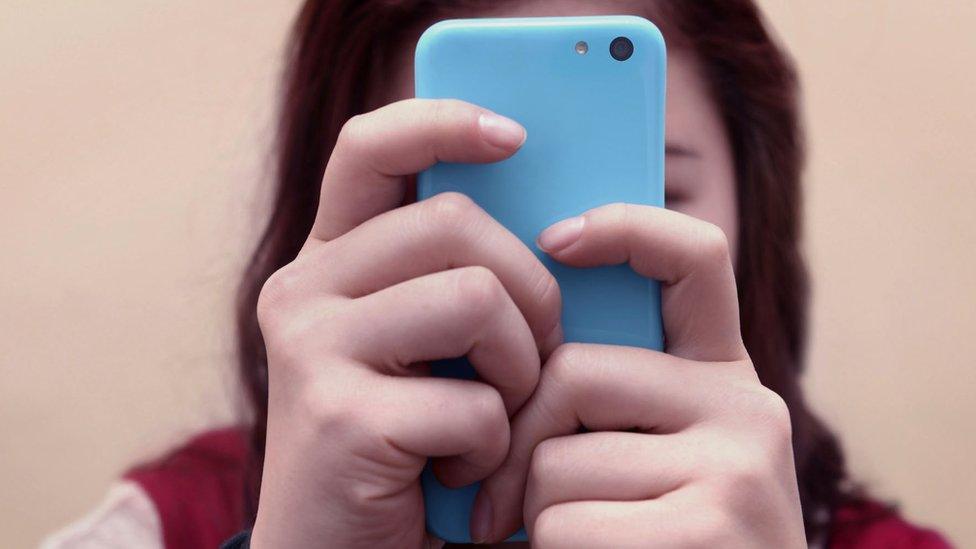Social media: How (some) use can be good for teenagers
- Published
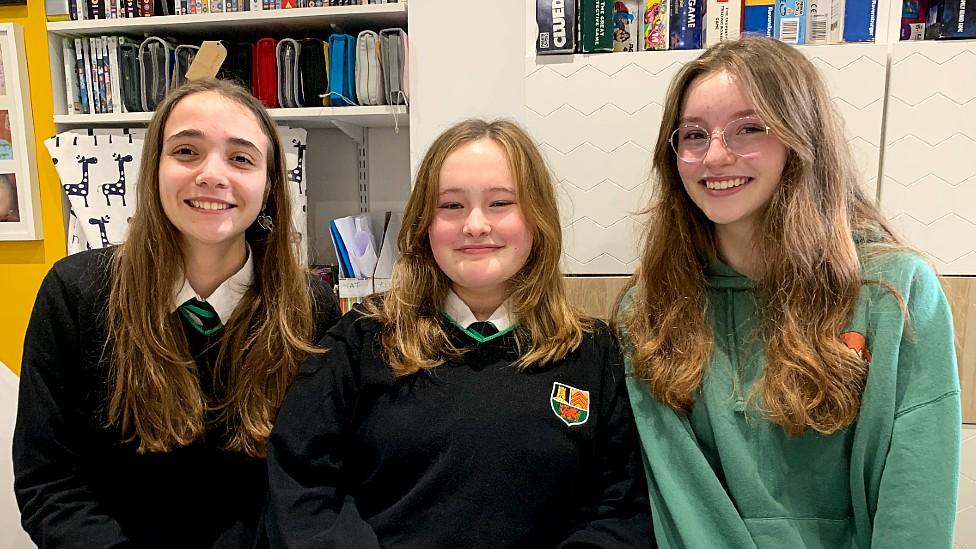
Sasha, Katie and Ruby have been close friends since primary school
Sasha, Katie and Ruby have been friends since primary school. They moved up to their secondary together and spend much of their free time in each other's company.
Like other teenagers, messaging each other on social media comes naturally to them. But does this add to - or detract from - their friendship?
New research, external has thrown up some welcome news for children and parents alike, many of whom worry about the amount of screen time young people have.
Dr Rebecca Anthony, a research associate at Cardiff University's public health body Decipher, external said the findings arose while studying responses to the 2019 Student Health and Wellbeing Survey, external.
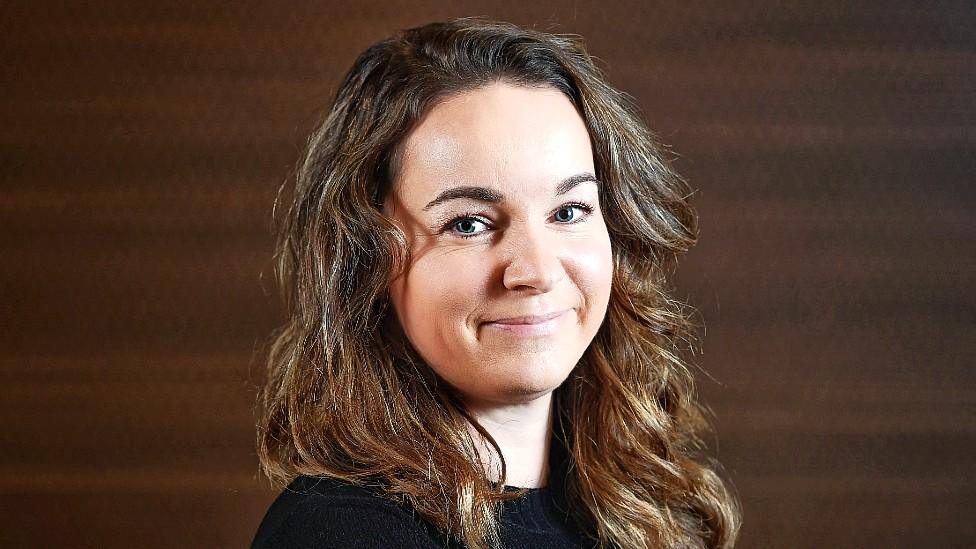
Dr Rebecca Anthony is hoping to delve deeper into the nuances of social media use
"What they were finding is there is a small but significant association between time spent online and depressive symptoms, but a review came out and said we're not really looking at the nuances of social media," she said.
"We used the survey to look at who young people were engaging with as well as how long they were spending online."
And, for once, there was good news about screen time.
Better wellbeing was found to be associated with those who spent their time online speaking to their close and wider group of friends who they already knew offline.
Dr Anthony said it was a "very clear message" that spending time speaking to people online the teenagers did not know was associated with "much poorer wellbeing" and was stronger for teenage girls who only messaged people online.
The research may provide some welcome news after another survey found teenagers in Wales had exercised less and spent more time in front of a screen during the pandemic, with almost a quarter experiencing adverse mental health symptoms.
But how does Dr Anthony's research translate to the three friends' experiences?
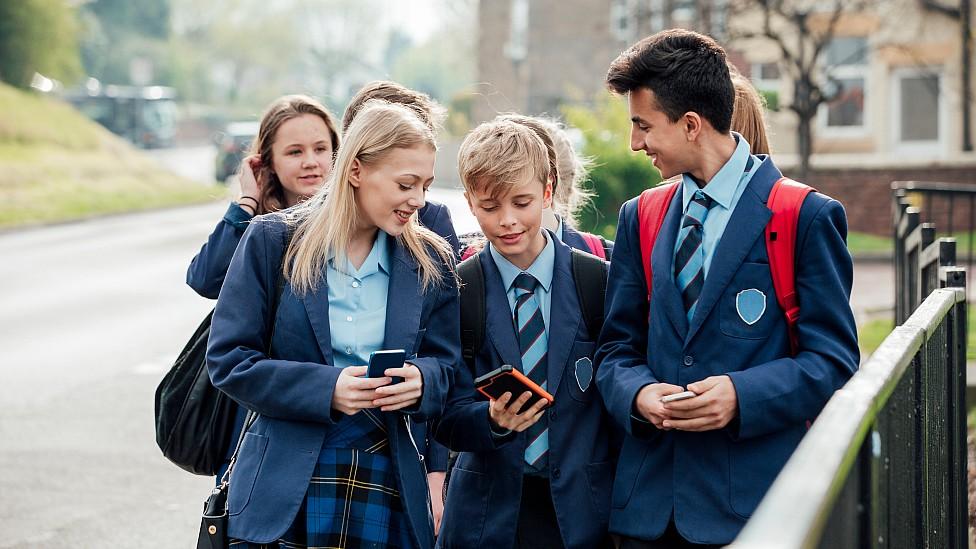
Most children have a phone when they start secondary school
The trio, now all 14 or 15, started using mobile phones in the last year of primary school, and at first just used WhatsApp to communicate with their closer friends.
This widened out after they moved to secondary school, when larger numbers of people would form messaging groups.
Sasha said: "In terms of WhatsApp, I honestly think I used it more [back then] because everyone had just gotten a phone and all the group chats were blowing up all the time."
The girls said they generally found this app a positive thing as they found their feet in secondary school.
As they got older, different apps started to take over.
Ruby said: "The thing that people got addicted to on their phones was TikTok, but the way people talked to each other was Snapchat and Instagram.
"There's more drama and things on Snapchat and Instagram. People get into arguments, and that's more impactful on our lives."
The girls agreed Snapchat was the main way larger groups communicate but, for their own more intimate friend group, they revert to WhatsApp.
'It's always there'
Ruby said that while messaging her close friends from home in the evenings was generally a positive experience, being in other group chats had sometimes left her with "a negative feeling, even if nothing awful has happened".
Do they ultimately think technology has improved both their friendship and their happiness?
Katie said: "I think it does, because if you're feeling really sad or bored or something, it's always there.
"If you're feeling really happy about something you can tell them now and it enhances how you're feeling, and brings you more enjoyment about it."
Sasha described it as a "comfort" that a person can always be contacted, even if it is to sort out an argument.
"You can text and say 'sorry, I didn't mean to say that', whereas if you didn't have that you would just have to sit there and think about it," she said.
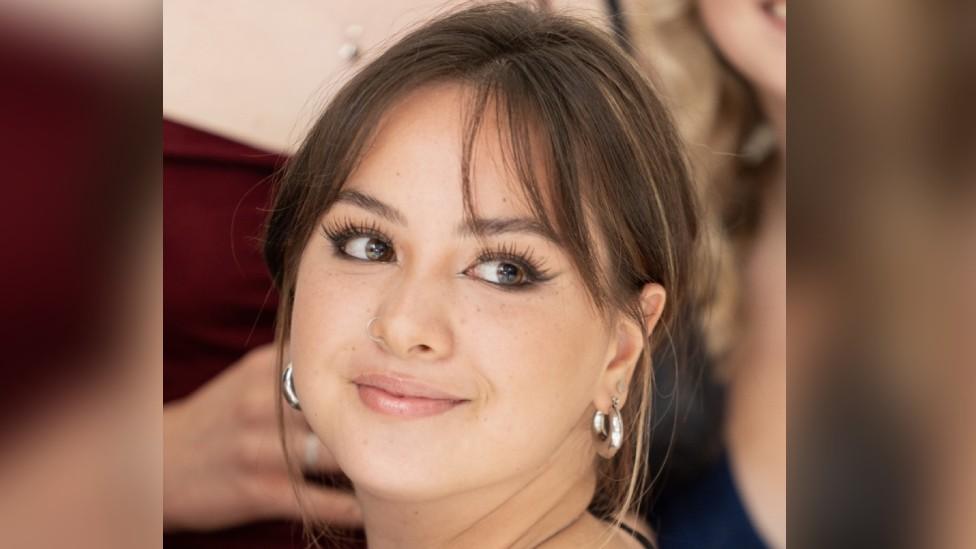
Evie Kwan can see the positives to online contact but is equally wary of its downsides
Evie Kwan, 17, is a Welsh Youth Parliament representative from Cowbridge, Vale of Glamorgan, with an interest in mental health.
She said the ability to check in with people, "ask how they are doing and if they need a chat or something face-to-face" was valuable.
"However, when it comes to things like loneliness, having that constant stream of knowing what everyone's doing, having them message you constantly, it's like a whole other world."
She added: "It can make you feel isolated and lonely if you're not participating in these chats in social media apps."
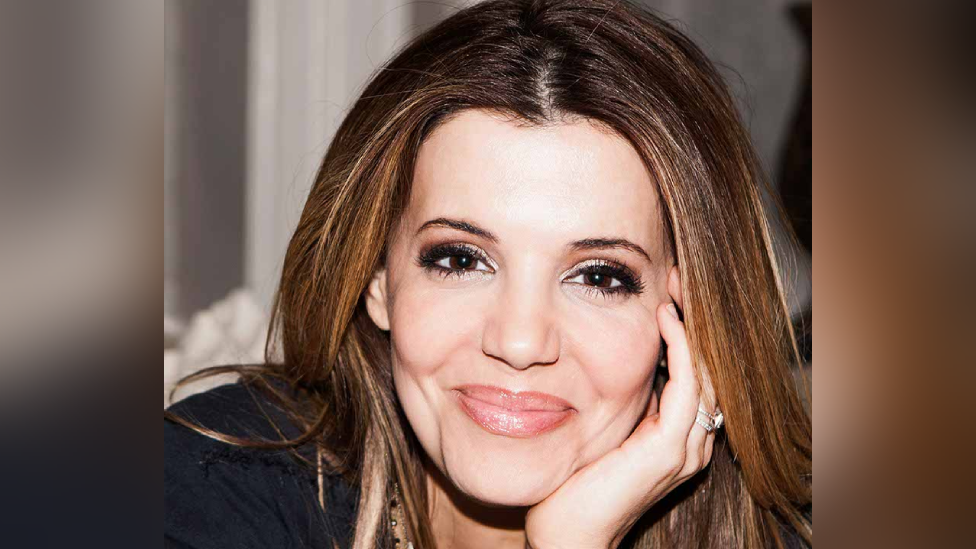
Dr Linda Papadopoulos likens screen time to one of your five-a-day vegetables
For Dr Linda Papadopoulos, psychologist and ambassador for online safety body Internet Matters, external, the most vital thing parents can do is get to know what their children are doing.
"Look out for how your kids are interacting online and how does it make them feel in the same way that you would with anything - they start a new club, they start a new school," she said.
"Did your kid go from being open and happy to becoming very, very withdrawn? Did your kid go from being very quiet to being very, very agitated when you take their tech off them?"
She uses the analogy of the five-a-day fruit and vegetables health message.
"It's wonderful that I connect with my friends online. But if that's all I'm doing, that's a problem.
"That's one vegetable. The other vegetable is, have you had a play date? Have you gone out? Have you moved? Have you interacted - just by text or have you spoken?"
Dr Anthony said she had been surprised at how "switched on" some teenagers were with self-control, including turning off notifications when they were doing homework.
The girls have seemingly worked this out for themselves when it comes to talking online.
"As long as you're able to control your limits, it's positive," said Katie.
Ruby added: "There are going to be people that have addictions to social media and then it will be a negative, but for people that can use it in moderation it's always going to be a positive."
- Published6 April 2023
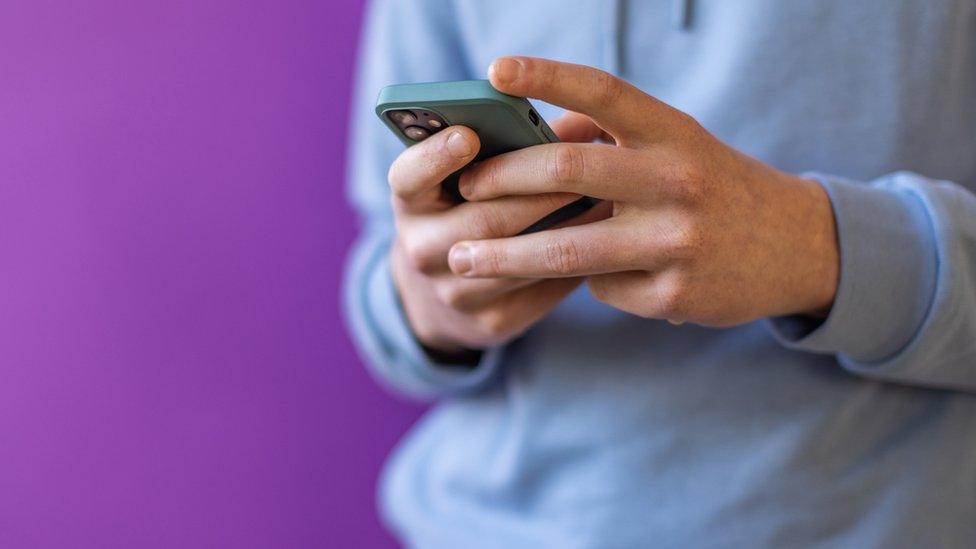
- Published1 March 2023
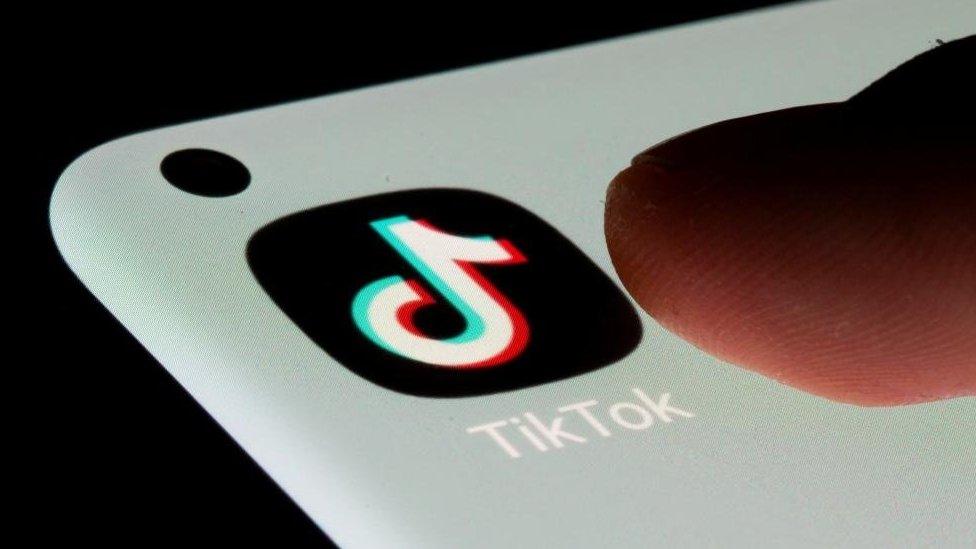
- Published11 July 2022
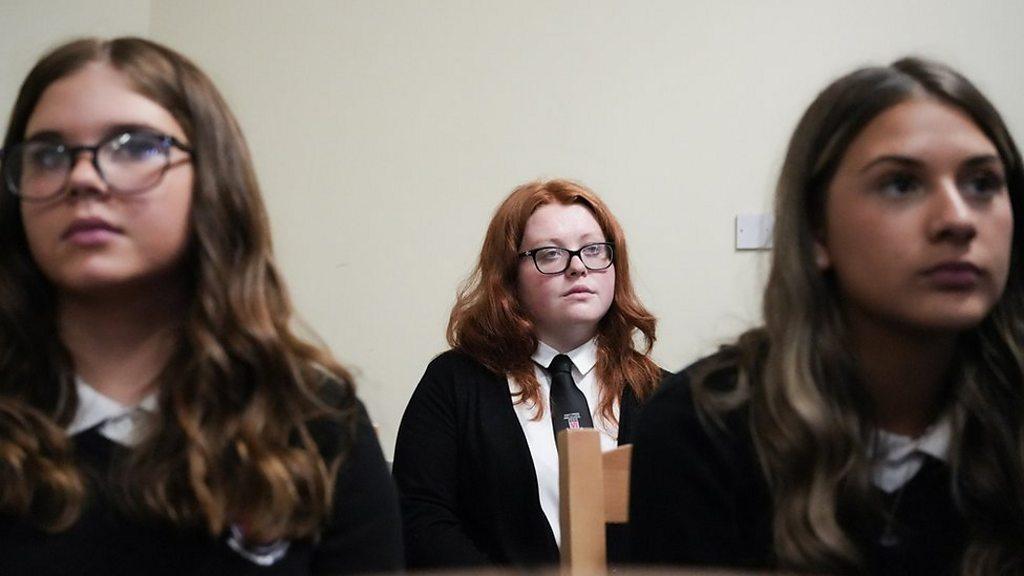
- Published25 April 2021

- Published12 April 2019
- Published27 September 2018
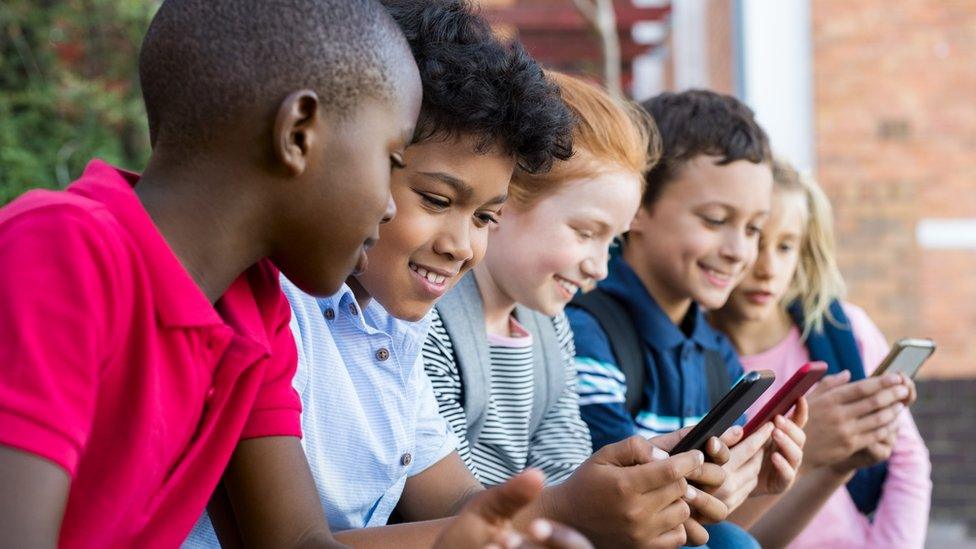
- Published27 March 2023
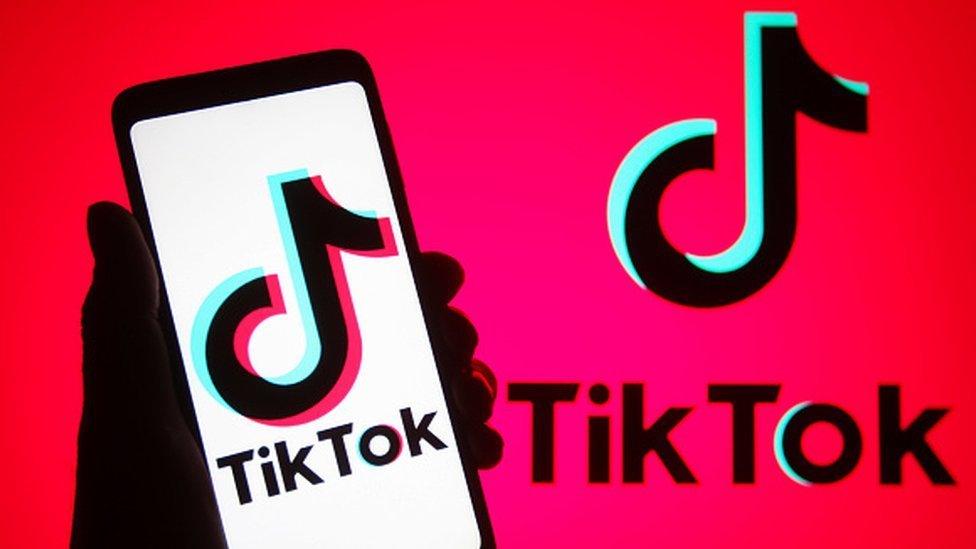
- Published24 March 2023
